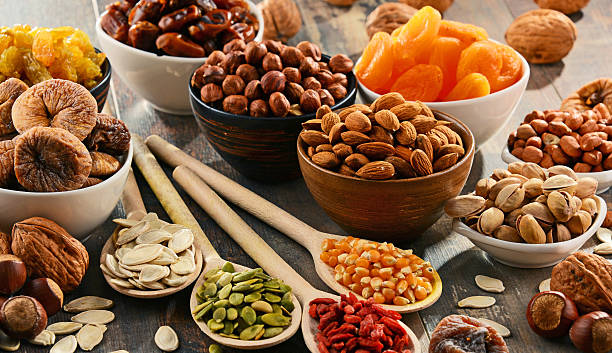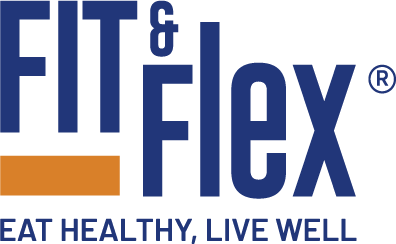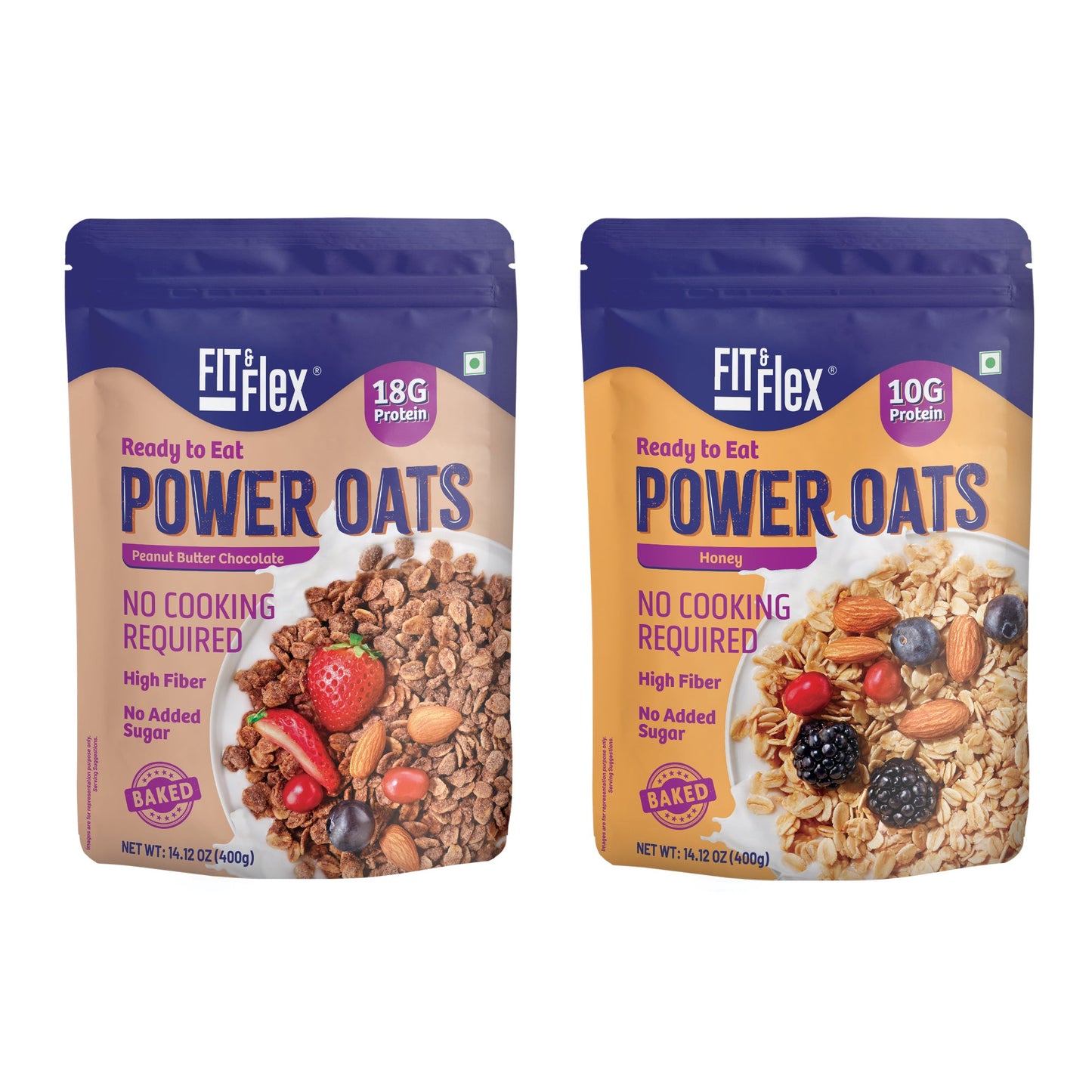Healthy Seeds: Different Types of Seeds with Health Benefits

Seeds provide numerous nutrients. It is the powerhouse through which a plant starts to grow. Hence, to include a seed in your diet is to open up areas of health and nutrition without much effort. There are many different types of seeds with various benefits a few of them are elaborated here.
What is the Seed?
A seed is a basic part of any plant. The ovules after fertilization, develop into seeds. A seed is made up of a seed coat and an embryo. The embryo is made up of a radicle, an embryonic axis and one (wheat, maize) or two cotyledons (gram and pea). A seed is found inside a fruit which converts into a new plant when we plant it. Hence, the seed is the most important part.
12 Different Types of Seeds You Should Be Eating
A Seed is primarily of two types. The two types are:
- Monocotyledonous Seed
- Dicotyledonous Seed
A Monocotyledonous seed, as the name suggests, has only one cotyledon. There is only one outer layering of the seed coat. Unlike monocotyledonous seed, a dicotyledonous seed, as the name suggests, has two cotyledons.
Here are different types of seeds you can add to your diet:
1. Flaxseeds
Overview: Jam packed with nutrients, just two tablespoons of flaxseed contains 6 grams of fiber and 4 grams of protein. It is also rich in alpha-linolenic acid, a type of omega-3 fatty acid. Flaxseed consumption helps improve cardiovascular health and also helps protect the body from cancer.
Health Benefits:
- Protects against cancer
- Improves cardiovascular health
- Aids in weight loss
- Super powerful for hair growth
Nutritional Facts & Value: One tablespoon of ground flax seeds contains the following:
- Calories: 37
- Protein: 1.3 grams
- Carbs: 2 grams
- Fiber: 1.9 grams
- Total fat: 3 grams
- Saturated fat: 0.3 grams
- Monounsaturated fat: 0.5 grams
- Polyunsaturated fat: 2.0 grams
- Omega-3 fatty acids: 1,597 mg
- Vitamin B1: 8% of the RDI
- Vitamin B6: 2% of the RDI
- Folate: 2% of the RDI
- Calcium: 2% of the RDI
- Iron: 2% of the RDI
- Magnesium: 7% of the RDI
- Phosphorus: 4% of the RDI
- Potassium: 2% of the RDI
2. Chia Seeds
Overview: These tiny seeds have come a long way and pack in 10 grams of fiber in a 2-tablespoon serving. They also contain proteins, omega-3 fatty acids, antioxidants, and minerals like: iron, calcium, magnesium, and zinc.
Health Benefits:
- Highly nutritious,
- Helps lower blood pressure,
- Provides strength to the bones,
- Aids in weight loss
Nutritional Facts & Value: Just 1 ounce (28 grams or 2 tablespoons) of chia seeds contains:
- Calories: 138
- Protein: 4.7 grams
- Fat: 8.7 grams
- Alpha-linolenic acid (ALA): 5 grams
- Carbs: 11.9 grams
- Fiber: 9.8 grams
- Calcium: 14% of the Daily Value (DV)
- Iron: 12% of the DV
- Magnesium: 23% of the DV
- Phosphorus: 20% of the DV
- Zinc: 12% of the DV
- Vitamin B1 (thiamine): 15% of the DV
- Vitamin B3 (niacin): 16% of the DV
3. Rajgira Seeds
Overview: Amaranth or Rajgira isn’t technically a grain like oats, wheat or rice. The flowers of the plant are made up of minuscule, grain-like buds, the reason why this plant often falls into the “grain” category.
Health Benefits:
- Helps In Weight Loss
- Protects Against Cancer
- Fights Inflammation
- Builds Muscle Strength
- Aids In Digestion
- Promotes Heart Health
Nutritional Facts & Value: One cup (246 grams) of cooked amaranth contains the following nutrients:
- Calories: 251
- Protein: 9.3 grams
- Carbs: 46 grams
- Fat: 5.2 grams
- Manganese: 105% of the RDI
- Magnesium: 40% of the RDI
- Phosphorus: 36% of the RDI
- Iron: 29% of the RDI
- Selenium: 19% of the RDI
- Copper: 18% of the RDI
4. Sunflower Seeds
Overview: Sunflower seeds are high in healthy fats, as well as: proteins, fiber, phytochemicals, selenium, copper, and magnesium. Richest source of Vitamin E.
Health Benefits:
- Anti-inflammatory
- Boost heart health
- Boosts immunity
- Good in pregnancy
Nutritional Facts & Value: One ounce serving of dry roasted sunflower seeds contain –
- Calories: 165
- Total Fat: 14 grams
- Saturated Fat: 1.5 grams
- Monounsaturated Fat: 3 grams
- Polyunsaturated Fat: 9 grams
- Cholesterol: 0 milligrams
- Sodium: 1 milligram
- Carbs: 7 grams
- Fiber: 3 grams
- Sugars: 0 grams
- Protein: 5.5 grams
- Vitamin A: 2.5 IU (0% Daily Value)
- Vitamin C: 0.5 mg (4% DV)
- Calcium: 20 milligrams (2% DV)
- Iron: 1 milligram (6% DV)
5. Pumpkin Seeds
Overview: Pumpkin seeds can constitute as a tasty snack and boasts about 16% of required daily iron needs. They are a good source of amino acids, protein, and omega-3s, as well as minerals such as zinc and magnesium. They are also rich in fiber.
Health Benefits:
- High in antioxidants
- Aids in weightless and gain
- Reduces certain risk of cancer
- Improves bladder health
- High in magnesium
- Lowers blood sugar level and improves heart health
Nutritional Facts & Value: 1-ounce (28-gram) serving contains:
- Fiber: 1.7 grams
- Carbs: 5 grams
- Protein: 7 grams
- Fat: 13 grams (6 of which are omega-6s)
- Vitamin K: 18% of the RDI
- Phosphorus: 33% of the RDI
- Manganese: 42% of the RDI
- Magnesium: 37% of the RDI
- Iron: 23% of the RDI
- Zinc: 14% of the RDI
- Copper: 19% of the RDI
6. Basil Seeds
Overview: Sabja seeds or basil seeds are black seeds that look a lot like chia seeds and offer immense health benefits. They are native to India and are rich in protein, essential fats, carbs, and are packed with fiber. Surprisingly, they contain no calories.
Health Benefits:
- Packed with fiber
- Supports gut health
- Aids in blood sugar control
- Good source of minerals
Nutritional Facts & Value: 100 grams (g) of basil seeds from India contain:
- 8 g of protein
- 8 g of lipids
- 8 g of carbohydrates
- 6 g of fiber
- 27 milligrams (mg) of iron
- 55 mg of magnesium
- 58 mg of zinc
7. Hemp Seeds
Overview: Hemp seeds are one of the healthy seeds to eat. They have 20 amino acids including 9 essential amino acids that body cannot produce. Also, they have proteins that enhance the immunity system and removes toxins from the body.
Health Benefits:
- Protects the brain
- Boosts heart health
- Reduce inflammation
- Improve skin conditions
- Improves arthritic conditions
Nutritional Facts & Value: 3 tablespoons (30gms) of hemp seeds contain 166 calories and the following nutrients –
- Calories: 166.
- Protein: 9.47 grams.
- Fat: 14.6 grams.
- Carbohydrates: 2.6 grams.
- Fiber: 1.2 grams.
- Sugar: 0.45 grams.
8. Pomegranate Seeds
Overview: Pomegranate seeds known as arils have lots of fiber and 40% of your daily requirement of vitamin C. They also contain heart-healthy antioxidants called polyphenols, including: flavonoids, tannins, and anthocyanin.
Health Benefits:
- Pomegranate contains 2 plant compounds
- Anti- inflammatory
- Helps fight prostate cancer
- Beneficial against breast cancer
- Lowers blood pressure
- Helps in fighting joint ache and arthritis
Nutritional Facts & Value: Pomegranates have an impressive nutrient profile — one cup of arils (174 grams) contains:
- Fiber: 7 grams
- Protein: 3 grams
- Vitamin C: 30% of the RDI
- Vitamin K: 36% of the RDI
- Folate: 16% of the RDI
- Potassium: 12% of the RDI
9. Apricot Kernels
Overview: The apricot kernel is a small but powerful seed that has been linked to possible cancer treatment. It’s found inside the center of an apricot stone.
Health Benefits:
- Aids digestive health
- Lowers blood pressure
- Improves heart health
- Reduces inflammation and arthritis
- Improves vision and eye health
- Supports liver health
- Supports mental health
Nutritional Facts & Value:
Apricots share many similar properties and uses with almonds. Apricot kernels are made up of:
- 45 to 50 percent oil
- 25 percent protein
- 8 percent carbohydrates
- 5 percent fiber
10. Sesame Seeds
Overview: Sesame seeds have many potential health benefits and have been used in folk medicine for thousands of years. They may protect against heart disease, diabetes, and arthritis
Health Benefits:
- Good source of fiber
- Lowers cholesterol and triglycerides
- Plant protein
- Lowers blood pressure
- Supports healthy bones
- Reduces inflammation
- Controls blood sugar levels
- Rich in anti-oxidants
Nutritional Facts & Value: A quarter-cup serving of dried sesame seeds contains-
- Calories: 206
- Protein: 6 grams
- Fat: 18 grams
- Carbohydrates: 8 grams
- Sodium: 4 milligrams
- Fiber: 4 grams
- Sugar: 0 grams
11. Grape Seeds
Overview: Grape seeds are rich in antioxidants, including phenolic acids, anthocyanin, flavonoids, and oligomer proanthocyanidin complexes.
Health Benefits:
- Reduces blood pressure
- Improves blood flow
- Reduces oxidative damage
- Improves collagen levels and bone strength
- Supports your brain as it ages
- Improves kidney function
- Reduces cancer risk and protect liver health
Nutritional Facts & Value:
- 35 percent fiber
- 3 percent minerals
- 11 percent protein
- 7 percent water
- 20 percent oils
12. Caraway Seeds
Overview: Caraway is a unique spice long used in cooking and herbal medicine. When used medicinally, caraway can be made into a tea or taken as a supplement. You can also apply its essential oils to your skin.
Health Benefits:
- Reduces inflammation
- Enhances healthy digestion
- Promotes weight loss
Nutritional Facts & Value:
Just 1 tablespoon (6.7 grams) of caraway provides:
- Calories: 22
- Protein: 1.3 grams
- Fat: 0.9 grams
- Carbs: 3.34 grams
- Fiber: 2.6 grams
- Copper: 6.7% of the DV
- Iron: 6.1% for women
- Magnesium: 5.4% of the DV
- Manganese: 4.8% for women
- Calcium: 3.6% of the DV
Zinc: 4.6% for women
Related FAQs
Q1. Are all types of pumpkin seeds edible?
Yes, all Pumpkin seeds are edible. Both taste good, and are healthy and nutritious.
Q2. Are sesame seeds a type of nut?
Although sesame seeds are classified as seeds and not nuts, the proteins in sesame seeds may resemble proteins in certain nuts
Q3. Are there different types of sesame seeds?
Sesame seeds comes in three colors. Brown, white and black.
Q4. Which seeds are best for weight loss?
- Flaxseeds.
- Chia seeds.
- Pumpkin seeds.
- Sunflower seeds.
- Hemp seeds.
- Sesame seeds
Q5. Which seeds are good for skin?
Most of the seeds including flax seeds, pumpkin seeds, hemp seeds, and sunflower seeds work best for skin.
Q6. Is it good to eat seeds daily?
Adding a subtle amount of seeds to your daily diet is beneficial for weight loss, healthy skin and a few other medical conditions.
Bottom Line
Seeds are great sources of healthy fats, vegetarian protein, fiber and antioxidant polyphenols. They can help reduce the risk of certain cancers, help lower cholesterol and heart diseases. Seeds are extremely easy to add to salads, yogurt, oatmeal and smoothies, and can be an easy way to add healthy nutrients to your diet.
Want to begin your day with a nutritious & refreshing breakfast? Make Fit and Flex Granola a part of your morning schedule. Granola is the most popular and super healthy breakfast cereal. It can be included in a variety of diets. Fortunately, there are numerous varieties, mixes, and flavors to choose from. Our delicious assortment of Granola includes oats, multigrain crispies, rice puffs, pumpkin seeds, dried fruits, sugar.
Want to add Fit and Flex Granola to your diet? Visit our online granola store.




